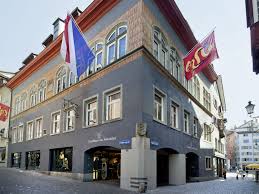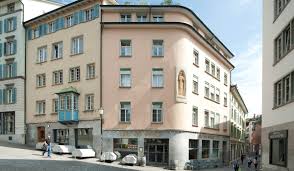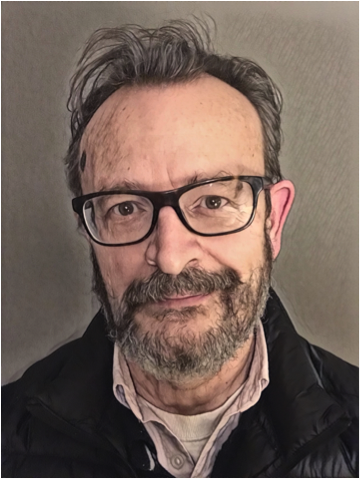The 2019 Zurich Lecture Series
ISAPZURICH and CHIRON PUBLICATIONS
present
Mark Saban, MA
“Two Souls Alas…” — Jung’s two personalities and the creation of analytical psychology
Jung’s difficulties with what he describes as his ‘two personalities’ dominate the first few chapters of MDR. As a child, Jung tried to alleviate his feeling of inner division by repressing one or other of his two personalities, but he eventually realised that in order to live a full and fulfilled life he had to, first, maintain contact with bothpersonalities (even though they conflicted), and, second, find ways to enable each personality to engage dialectically with the other.
This experience constellated an important insight: that psychological transformation – and therefore the process of individuation – depends upon a dynamic engagement with the opposites and the tension between them. Only in this way can a continuous process of psychic balancing be enabled, and one-sidedness avoided.
This idea runs like a red thread through every period and every aspect of Jung’s psychology. We see it in his early work on the complexes, and we see it played out in that dialogical meeting between personality 1 and personality 2 which Jung describes in MDR as his ‘confrontation with the unconscious’. Central to individuation, it runs through Jung’s ideas on the ‘transcendent function’ and on typology and achieves fruition in Jung’s magnum opus, Mysterium Coniunctionis..
Because the logic of the two personalities is fundamental to analytical psychology it has the capacity to provide a unique critical tool when turned back toward Jung’s psychology itself. Applied in this way, the reflexive critique immediately shows up an endemic one-sidedness in Jung’s psychology whereby the themes, motifs and ideas associated with personality no 2 dominate, while the themes motifs and ideas that come with personality no 1 are persistently ignored or rejected.
For example, when we focus on the particular opposites, inner vs outer, and look at the ways in which Jung dealt with them in his life and in his work, what becomes apparent is a striking failure to maintain the logic of the creative and transformative dynamic he had developed. Instead, Jung one-sidedly identifies the inner realm with psychology itself, and thereby eliminates the outer as proper object for psychological attention.
This has meant that, despite Jung’s own pioneering work with transference and counter-transference (work that depends upon a relational – inner/outer – dynamic), analytical psychology has, on the whole, been marred by a persistent and problematic reluctance to engage with the outer other. This has led, among other things, to a long-lasting difficulty in dealing with, or even properly acknowledging, the psychosocial dimension.
This problem has become increasingly apparent as the relational, social and political realm becomes recognised more and more as active within, and critical to, depth psychology. By properly highlighting the logic of the two personalities we can begin to redress this imbalance with an acknowledgment that the collective unconscious may be encountered not only through intrapsychic relations with inner others, but also through extra-psychic engagement with the outer collective and outer others.
Date & Venue
4–5 October, 2019 | Zurich, Switzerland
Friday, 4 October, 17:30–21:00: Reception, Lecture & Dinner
Zunfthaus zur Schmiden, Marktgasse 20, Zurich
Saturday, 5 October, 10:00–15:30: Lectures & Discussion
Zentrum Karl der Grosse, Kirchgasse 14, 8001 Zurich

Zunfthaus zur Schmiden
Marktgasse 20, 8001 Zurich
The opening lecture and dinner on Friday, October 4 will be held at the “Zunfthaus zur Schmiden” (Guild House for Blacksmiths), a beautiful city palace located since 1412 at “Marktgasse 20, close to the Limmat River in the heart of old Zurich. The sumptuous late-Gothic Guildhall and the historic rooms with style, warm hospitality and tradition will make you feel welcome. It is a special privilege to celebrate the Zurich Lecture Series at this grand location.
Friday, 4 October, 17:30: Reception; 18:15: Lecture; 19:15–21:00: Three-Course Dinner.
Location: the historic Zunfthaus zur Schmiden, Marktgasse 20, 8001 Zürich.

Karl der Grosse
Kirchgasse 14, 8001 Zurich
More lectures will follow on Saturday, October 5 at the Zentrum Karl der Grosse. The Karl der Grosse is a classic 18th century building that offers a large hall with stage, historic meeting rooms with original equipment from the 17th and 18th centuries or a Mediterranean-style courtyard are available for meetings, seminars or courses.
Saturday, 5 October, 10:00–12:00: Lecture and Discussion; 13:30–15:30: Lecture and Discussion.
Location: Karl der Grosse, Kirchgasse 14, 8001 Zurich
2019 ZLS Lecturer

Mark Saban, MA
Mark Saban is a senior analyst with the Independent Group of Analytical Psychologists and a lecturer at the Department of Psychosocial and Psychoanalytic Studies, University of Essex. He co-edited Analysis and Activism – Social and Political Contributions of Jungian Psychology with Emilija Kiehl and Andrew Samuels (Routledge 2016) (Finalist American Board and Academy of Psychoanalysis Book Prize, Nominated Gradiva Award for Best Edited Book).
Recent articles include, ‘Secrete e Bugie. Un’area cieca nella psicologia junghiana’, Rivista di psicologia analitica, 2017, n. 43 Volume 95. and ‘Outside-In: Jung’s myth of interiority ambiguated Or – Knowing me, Knowing Jung – ahah!’, Journal of Analytical Psychology, 2018, 63, 3
Cost & Registration
Package One: 4–5 October, The Complete Event
Friday evening lecture at the Zunfthaus zur Schmiden with reception and 3-course dinner (excluding beverages); and 2 Saturday lectures (2 double hours) at the Zentrum Karl der Grosse.
Attendance fee: 250 CHF
Attendance fee for ISAPZURICH students only: 90 CHF
Limited Enrollment • Unparalled Value
Register early to save your place.
Package Two: 4 October, Friday Opening
Evening lecture at the Zunfthaus zur Schmiden with reception and 3-course dinner (excluding beverages).
Attendance fee: 180 CHF
Attendance fee for ISAPZURICH students only: 70 CHF
Package Three: 5 October, Saturday Lectures
2 Saturday lectures (2 double hours) at the Zentrum Karl der Grosseand discussion.
Attendance fee: 100 CHF
Attendance fee for ISAP students only: 40 CHF
About the Zurich Lecture Series
The Zurich Lecture Series in Analytical Psychology was established in 2009 by the International School of Analytical Psychology Zurich (ISAPZURICH) and Spring Journal Books to present annually new work by a distinguished scholar who has previously offered innovative contributions to the field of Analytical Psychology by either:
- bringing analytical psychology into meaningful dialogue with other scientific, artistic, and academic disciplines;
- showing how analytical psychology can lead to a better understanding of contemporary global concerns relating to the environment, politics, religion; or
- expanding the concepts of analytical psychology as they are applied clinically
Postlude to the Zurich Lecture Series 2020
Sunday, 6 October 2019 – Tuesday, 8 October 2019

Stampfenbachstr. 115, 8006 Zürich
Tram 11 or 14 to Beckenhof
You are invited to participate in three days of Postlude events following ZLS, which includes an Excursion on Sunday, 6 October, and lectures by ISAP analysts on Monday and Tuesday, 7 and 8 October, at the International School of Analytical Psychology in Zurich.
Sunday, 6 October, 9:15–17:30
EXCURSION TO ST. GALLEN
led by ISAP analyst Paul Brutsche
An opportunity to visit with Paul the interesting Swiss town of St. Gallen and its treasures, including the oldest library in Europe, now a designated UNESCO World Heritage Site, the adjacent abbey Cathedral, St. Gallen’s collection of Outsider Art, and the unique architecture of Old Town. The excursion fee of CHF 90 (CHF 60 for students with half fare abo) includes round trip group travel, audio-guide and admission to the library and museum, and a coffee. Lunch is self-pay. Sign up and payment in cash will take place at the Zurich Lecture Series opening reception on Friday, 4 October. For more information, contact [email protected]
POSTLUDE LECTURES
Monday, 7 October
10:00-11:45
Brigitte Egger, Dr. sc. nat. ETH
Dante’s Divine Comedy: A thorough and exquisite guide to soul and individuation centered on love
13:00-14:45
John Hill, MA
Estranged from Self and the World: What can we do?
Tuesday, 8 October
10:00-11:45
Gunilla Midbøe, MSW
Visit from the Minotaur: A myth and a case exploring the boundaries and limits of ego-consciousness and archetypal powers
13:00-15:15
Civilization in Transition: Racism – A Jungian View
Panel discussion with Deborah Egger, MSW; Nancy Krieger, PhD; Bernard Sartorius, lic. theol; and Murray Stein, PhD, moderator
LECTURE FEE: CHF 30 General Entry; CHF 20 Seniors & Students
Gratis for ISAP Analysts & Students
Speakers
Downloads
| File Name | Type | Permissions | Changed Date | Date | Size |
|---|
Combined size: 0 B

